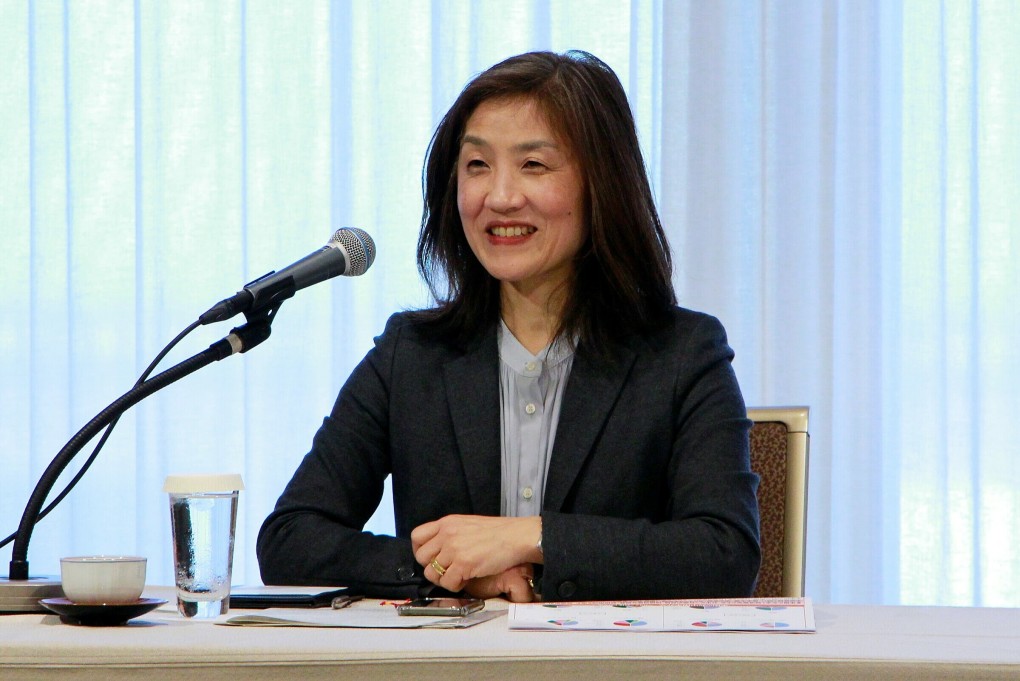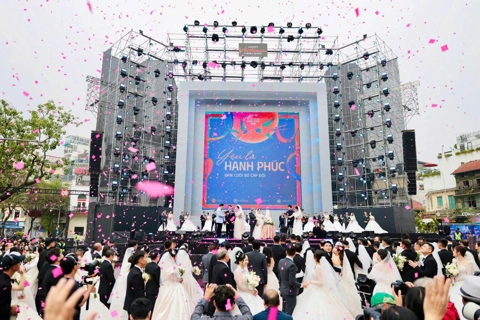Japan mulls over relaxed immigration rules for Vietnamese nationals
The Japanese Government is reviewing measures to attract high-quality labor, easing requirements for those from Vietnam.
Japan is considering easing immigration procedures for Vietnamese to attract tourists and skilled workers, according to Japanese Foreign Ministry Spokeswoman Kobayashi Maki.
The move is part of Tokyo's efforts to revive the tourism industry after Covid-19, Kobayashi Maki said at a press briefing in Hanoi this week on the visit of Japan's new Foreign Minister Kamikawa Yoko to Vietnam.
“The number of Vietnamese tourists coming to Japan in 2019, before the outbreak of the Covid-19 pandemic, reached about 500,000, while Japanese visitors to Vietnam numbered 952,000. In the first quarter of this year, some 161,000 Vietnamese visited Japan, 12 times higher than the same period in 2022 and one of the highest growth rates ever,” Maki said.
Japanese Foreign Ministry spokeswoman Kobayashi Maki. Photo: APIC |
"We need to further increase this number by promoting cultural cooperation and easing entry procedures for Vietnamese citizens to Japan. There is no full visa exemption yet, but Japan is considering easing the process," the official said, though she did not specify measures to ease the entry process.
Vietnamese citizens wishing to enter Japan must apply for a visa, except for holders of diplomatic or official passports. Japan will begin issuing electronic permits to Vietnamese tour groups in November, but not yet to independent travelers.
The Japanese government is reviewing measures to attract skilled workers with possible relaxed requirements for those from Vietnam, as the Southeast Asian country provides high-quality workers while Japan faces an aging population and labor shortage.
"We have seriously thought about attracting workers by expanding the fields of expertise allowed to hire foreign workers and improving their conditions and benefits," Maki said, adding that the changes could be applied from 2024.
Japan is to abolish the controversial foreign internship program to build a new labor recruitment system to "protect and develop" human resources, which ensures the most benefits during the work process and long-term careers for employees.
Data from the Japan International Cooperation Agency (JICA) shows that as of June 2021, about 202,000 Vietnamese were working in the country as technical trainees (de facto employees).
Travelers wait for check-in at Narita Airport, Japan. Photo: VNA |
Maki also reaffirmed that Japan will continue to provide official development assistance (ODA) even when the country faces a budget deficit.
Tokyo has recently adopted a new approach to ODA policy. Japan often waits for partners to provide priorities and project proposals before engaging in a multi-year discussion process. Under the new policy, Tokyo will proactively propose cooperation packages in areas of interest to partner countries to speed up the preparation.
In a meeting with Japanese Foreign Minister Kamikawa Yoko on October 10, Prime Minister Pham Minh Chinh also asked Japan to provide a new ODA for large-scale strategic infrastructure development projects in Vietnam.
"We are discussing this proposal. Tokyo attaches great importance to developing digital connectivity and transportation infrastructure in the region," Spokesman Maki said.
Japan is Vietnam's leading economic partner, ranking first in ODA, second in labor cooperation, third in investment and tourism, and fourth in trade. Bilateral trade turnover reached nearly US$50 billion in 2022, of which Vietnam exported goods worth $24.2 billion to Japan and imported $23.4 billion.
Japan is also the largest signatory to bilateral and multilateral free trade agreements with Vietnam, including the ASEAN-Japan Comprehensive Economic Partnership Agreement (AJCEP) and the Vietnam-Japan Economic Partnership Agreement (VJEPA), the Comprehensive and Progressive Agreement for Trans-Pacific Partnership (CPTPP), and the Regional Comprehensive Economic Partnership (RCEP).
Japanese Foreign Minister Kamikawa Yoko visited Vietnam on October 10-11 to mark the 50th anniversary of establishing diplomatic relations between the two countries. She is one of five female officials appointed to Prime Minister Fumio Kishida's new cabinet in a reshuffle in mid-September.


.jpg)










